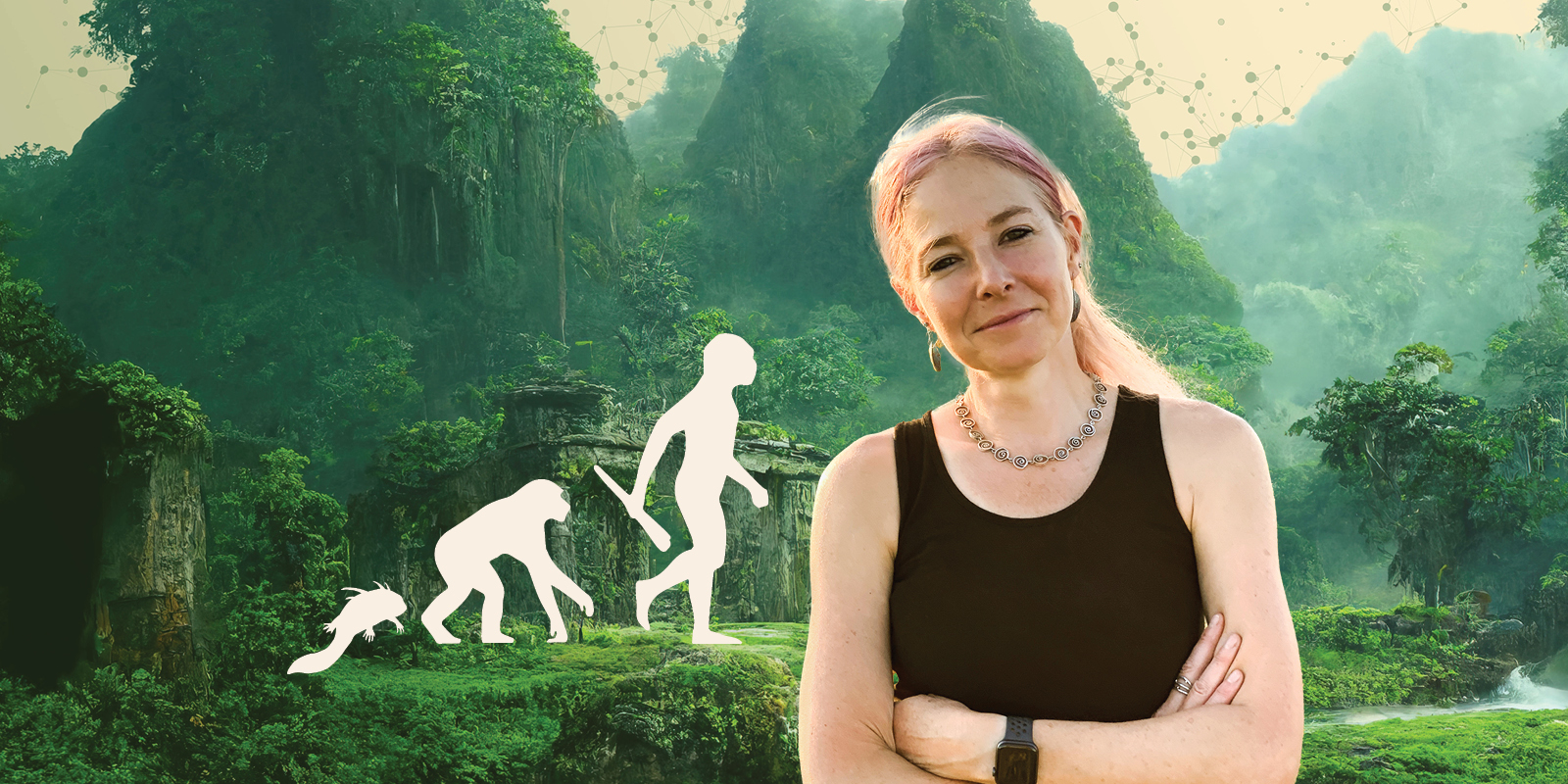This is the story of us. Our story started 3.8 billion years ago. Who are we? Where do we come from? What does it mean to be human?
For thousands of years, such questions have been explored through philosophy and religion, but the answers now seem to lie firmly within the grasp of an empirical approach to the world and our place within it.
By peering deep into our past and dragging clues out into the light, science can now provide us with some of the answers to the questions that people have always asked.
From the first spark of life on earth 3.8 billion years ago, we track the evolution and connectivity of all living things.
Join us as we follow in the footsteps of our ancestors from Africa into Asia and around the Indian coastline, to Australia, north into Europe and Siberia, and, eventually, to the last continents to be peopled: the Americas. We’ll meet some other human species along the way.
We’ll examine the sophistication of some of the earliest civilisations, and we’ll discuss how we know what we know and why we think what we think, what the science can tell us. This is the story of us, from single cell to civilisation.
Who is Prof Alice Roberts?
I’m an academic, writer and broadcaster. I’m interested in the structure of humans, how we function, and our place in the wider environment.
I’m fascinated by human biology and history - and although these are often considered to be separate subjects, they are intertwined and inseparable.
I originally trained as a doctor, but left surgery behind to become a university academic - teaching clinical anatomy to students and doctors, and researching human origins and disease in ancient bones.
From very early in my academic career, I became involved in university outreach. Universities are knowledge generators, and we should share that knowledge widely - but listening and learning from others’ experience and expertise is also vitally important. In this way, we can make sure that knowledge benefits everyone - whether that’s sharing the latest medical advances or enriching our culture in other ways. I’ve been Professor of Public Engagement with Science at the University of Birmingham since 2012.
I’ve presented more than a hundred television documentaries, ranging across human biology, history and archaeology. I first appeared on television in 2001, as a human bone specialist on Channel 4’s Time Team. I went on to present Coast on BBC Two, and then to write and present a range of television series for the BBC, including The Incredible Human Journey, Origins of Us and Ice Age Giants, as well as several Horizon programmes. I’ve also fronted several history series on Channel 4 including Britain’s Most Historic Towns, Fortress Britain and Ancient Egypt by Train, as well as Curse of the Ancients and Royal Autopsy on Sky History. My longest running series, BBC Two’s Digging for Britain has been going strong for more than ten years.
I’ve written numerous popular science books. My book The Incredible Unlikeliness of Being, was shortlisted for the Wellcome Book Prize 2015. I’m also a keen artist and like to explore ways of engaging people with science through art.

